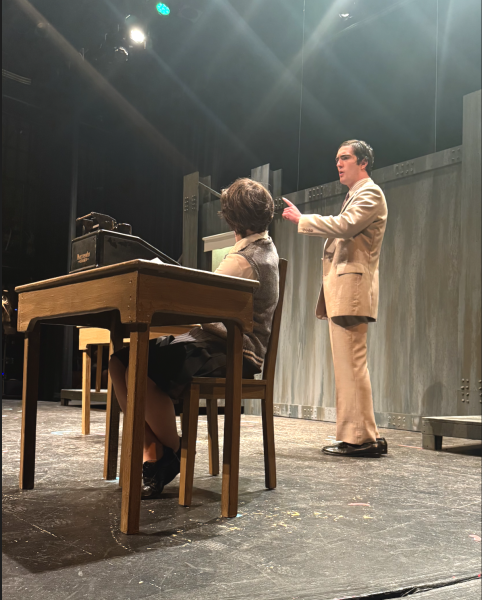Coronavirus Should Change Latin’s Attitude Towards Sick Days
April 3, 2020
There is no doubt that students at Latin face academic pressures on a daily basis. With the stresses associated with various assignments and assessments, missing one day of school often seems overwhelming. As a result, even if students may feel sick, the chance of them staying home is low. However, in the wake of the coronavirus, hopefully, this will change.
Junior Claudia Ballen says, “before the coronavirus pandemic, I think Latin students would definitely come to school even if they weren’t feeling 100% healthy.” She agrees that the source of this problem lies in academic stress. “There is a pressure to be present at all times during school and sometimes that means sacrificing a little bit of health,” she adds. Ballen also details the lengths that many go to in order to attend school. “I think if a student feels well enough to stand and walk, then they will probably come to school,” she says. For a school that prioritizes wellness, it is surprising that many students regularly forget the importance of staying healthy. This is to say that Latin’s prioritization of health must be more explicitly embraced across the school.
Sophomore Peter Cahillane says, “missing school and having to make up all the work can be extremely stressful and difficult.” Just as Ballen explains, amongst the student body at Latin, there seems to be a greater emphasis on maintaining grades than on maintaining a healthy lifestyle. “I think there is an extreme burden put upon students overall in terms of grades and school work to get an A on every assignment,” Cahillane states. Although many are proud to attend such a rigorous school, the intellectual strain of Latin can be exhausting at times. Cahillane says, “I think that the number of stress students are constantly under can be very draining physically and mentally.” To combat this strain, students taking sick days when necessary must be normalized.
Sophomore Marissa Isaacs stresses that this problem is not one specific to Latin; it’s a problem that all schools face. She says, “students, not just at Latin but in general, tend to go to school even when they are not feeling well due to the stress that comes with having to make up a day of missed work.” Isaacs points out the importance of community, as well. She says, “the entire community should continue to remind one another to stay home when feeling sick and support classmates in catching up when they miss a day of school work.” Issacs also suggests opening up a dialogue about this culture when school is back in session. She says, “the community should encourage students to always prioritize their own health/well-being.”
Considering the current state of the world, it is clear that students should reconsider the significance of health in comparison to school work. “I think after the coronavirus pandemic, there will be much more importance placed on sanitation and health,” Ballen says. She feels that moving forward, changes must be made to this “sick culture” mentality. In Ballen’s eyes, this change will be achieved by reducing and revising the workload for sick students. “The school could be more flexible in how a student who was sick makes up work,” she states. Perhaps with greater coordination with teachers, students would be more willing to miss school when needed. Ballen also says, “there is a pressure to be doing the work in real-time when you’re homesick, which almost defeats the purpose of staying home.” From Cahillane’s perspective, in order to renounce Latin’s “sick culture,” there is only one thing to do. He says, “all should understand that staying home when you are sick is the right move even considering how disruptive it is to your life.”























































Zach M • Apr 4, 2020 at 10:59 pm
Good and important article, Nina! This is an issue for teachers as well — I’ve heard teachers at Latin say time and again that it is way more work to make sub plans than just come in and teach when sick… we need to model staying home, too! – Mr. McArthur